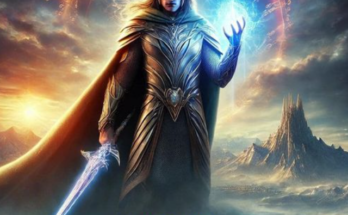When the Emperor of China issues a decree that one man per family must serve in the Imperial Army to defend the country from Northern invaders, Hua Mulan, the eldest daughter of an honored warrior, steps in to take the place of her ailing father.
![Mulan 2020 - I'll Make a Man Out of You - Reimagined [4K]](https://i.ytimg.com/vi/izicxoFycWc/maxresdefault.jpg)
“Mulan,” directed by Niki Caro, is a live-action adaptation of Disney’s beloved animated classic from 1998. Set in ancient China, the story follows a young woman named Hua Mulan, played by Liu Yifei. The narrative centers around Mulan’s journey as she disguises herself as a man to take her ailing father’s place in the Imperial Army when the Emperor issues a decree that one man from each family must fight against an invading force led by the ruthless Shan Yu.
The film opens with Mulan, a spirited and headstrong girl, struggling to conform to the expectations placed on her by society. Her family desires her to marry and fulfill traditional roles, but Mulan harbors dreams of honor and adventure. When the Huns invade, the Emperor calls for conscription, and Mulan’s father, an aging war veteran, is called to duty. In an act of defiance and love, Mulan cuts her hair, dons armor, and takes her father’s place, adopting the name “Hua Jun.”
As Mulan trains with her fellow soldiers, including the loyal and brave Chen Honghui, she faces numerous challenges. The rigorous training reveals her physical prowess, intelligence, and strategic thinking, traits that set her apart despite her initial struggles to fit in. However, her true identity remains a secret, which adds layers of tension and drama to her journey.
Mulan’s path is complicated by the arrival of Xian Lang, a powerful witch who serves Shan Yu. Xian Lang embodies the themes of identity and acceptance, paralleling Mulan’s own struggles as she grapples with her dual identity. The film emphasizes the importance of inner strength and authenticity, highlighting Mulan’s determination to protect her family and country while also forging her own identity.
As the story progresses, Mulan must confront her fears and insecurities. In a climactic battle, she reveals her true self, using her ingenuity and bravery to save her comrades and ultimately defeat Shan Yu’s forces. This act of courage not only earns her the respect of her peers but also transforms societal views on gender roles, proving that honor comes from within, not from conformity.
The film concludes with Mulan returning home, where she is celebrated as a hero. She declines an offer to serve in the Emperor’s court, choosing instead to forge her own path, signifying her growth and independence. The story of Mulan is a powerful tale of courage, identity, and the breaking of societal norms, making it a resonant retelling for contemporary audiences.
Overall, the 2020 adaptation retains the essence of the original story while offering a fresh perspective through its more nuanced characters and themes of empowerment.



